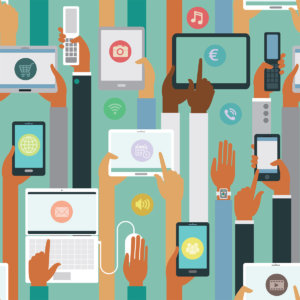The Stress Effect in Information and Communication Technologies
What’s happening this week at the intersection of management and technology.
Topics
Tech Savvy
Are your employees ready for their close-ups? Two blips that simultaneously popped up on the Tech Savvy radar the other day gave me pause. The first is an article, by Fast Company reporter Cale Guthrie Weissman, which describes an employee communication software platform named Odo — shorthand for odometer. Qualtrics, a developer of customer experience, market research, and employee management software valued at more than $1 billion, developed Odo to better connect and enhance the performance of its 1,100 employees.
“Not only does this program provide a way for people within an organization to chat with each other,” writes Weissman, “but it also lets employees record their own metrics and request any internal task be done. The feature that caught my eye, though, is that it gives everyone access to birds-eye cameras looking over the office’s entire open floor plan.”
CEO Ryan Smith is convinced that Odo helps create a culture of radical transparency at Qualtrics. The system with its dozens of overhead cameras ensure that everyone has access to everything. “Bolstering this are the water coolers,” writes Weissman. “On every floor in the Provo office is a drink station with a screen and camera mounted atop it. This screen connects with the other offices around the world, making it possible for trans-Atlantic water cooler conversation. The system is voice-activated, so if someone is talking to the screen in Dublin, people in Provo will see who’s on the line.”
The second blip is an article in INSEAD Knowledge, by Pawel Korzynski, Elizabeth Florent-Treacy, and Manfred Kets de Vries. In it, the academics wonder what kinds of psychological stresses information and communication technologies (ICTs), such as Odo, might pose for employees. “While ICTs have many advantages, including simplifying our access to power and information (in the sense that we no longer need to be in the same country, let alone the same office, as the people we want to connect with), digital omnipresence is creating new social challenges,” they write. “This constant bombardment creates challenges of work overload, complexity, insecurity and feelings of invasion and uncertainty; in a word, burnout.”
The team conducted a study “to identify specific personality traits that factor into the human cost of digitization.” They found that introverts and pseudo-extroverts benefit from ICTs and experience lower levels of technostress.

